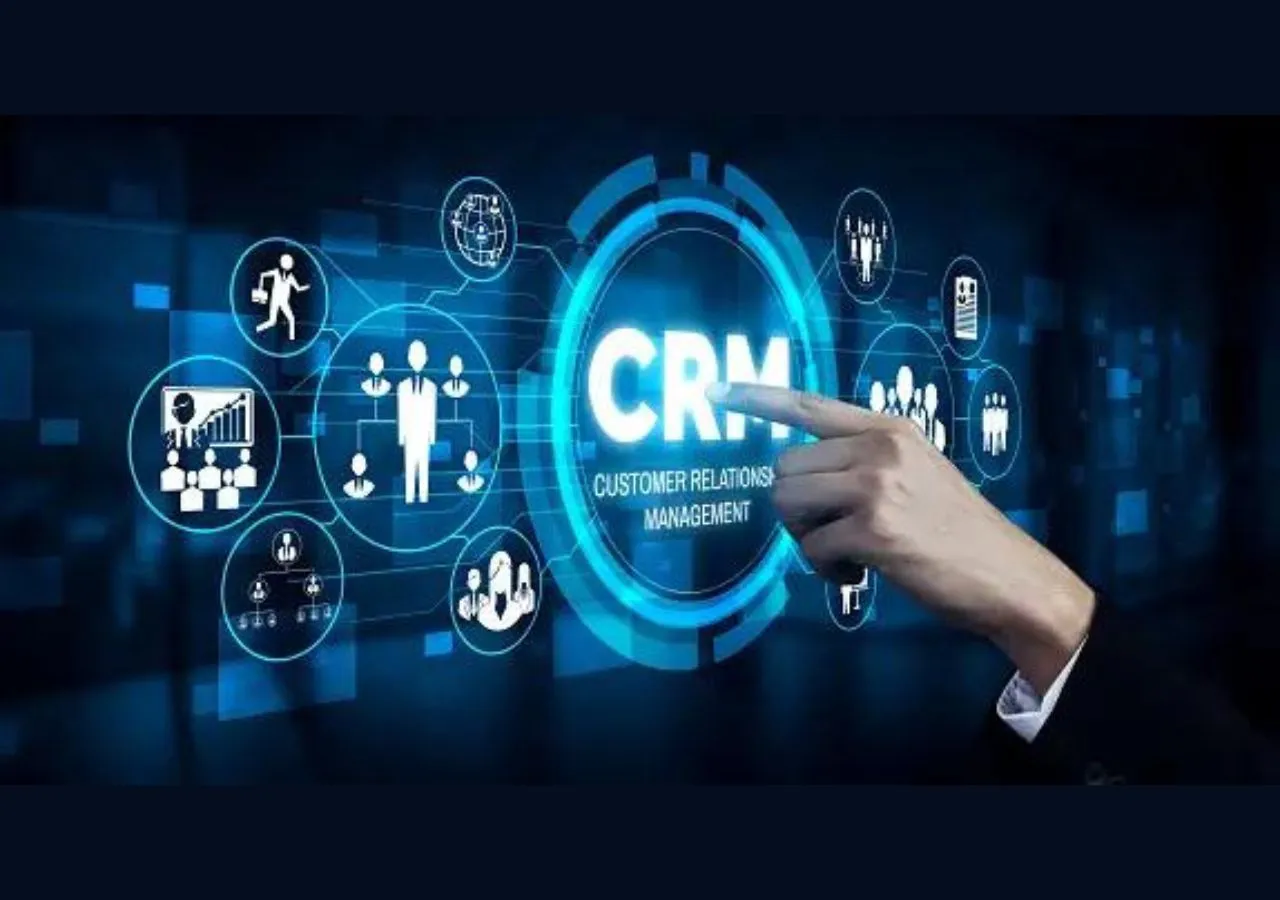Managing good relationships with customers is essential to any successful business. In every business, where customer expectations continue to rise, customer relationship management (CRM) software is necessary as a critical asset. This powerful tool can revolutionize how businesses interact with their clients, significantly increase sales, and build customer satisfaction. In this article, we guide you on how you can boost your sales and build relationships with customers using Unlock the Power of CRM Software.
What is CRM?
Customer relationship management (CRM) is a way for businesses to manage and improve their interactions with customers. It stores customer information, such as their names, contact details, and past purchases. This helps businesses remember important information and provide better service. The primary purpose of CRM is to improve customer service, retain customers, and increase sales. This includes using technology to organize, automate, and coordinate sales, marketing, customer service, and technical support. For example, when you buy something online, CRM helps the company keep track of your purchase, send you updates about your order, and support you if you have any issues.
Brief History:
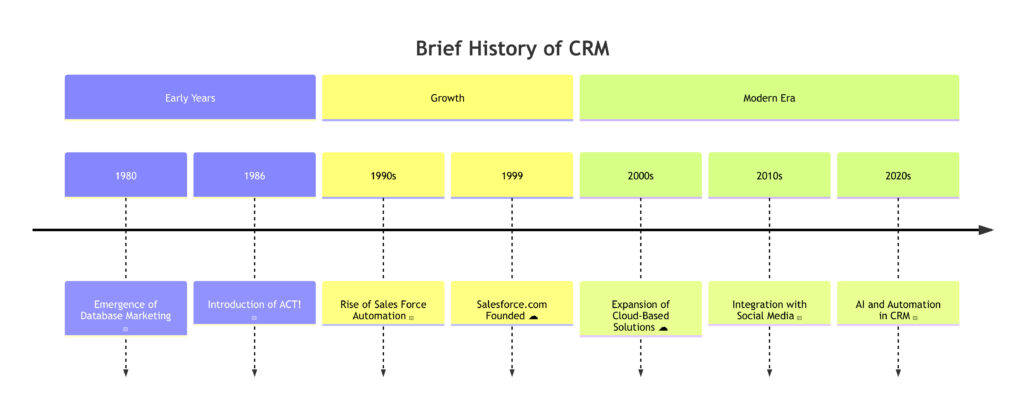
In the early days, businesses used paper files and manual processes to keep track of customer information. With the advent of computers in the 1980s, companies began using digital databases to store customer data. The first CRM software solutions appeared in the mid-1990s, with companies like Siebel Systems pioneering the market. These early systems focused on sales force automation (SFA) and customer service, laying the foundation for the more comprehensive CRM solutions we see today.
The turn of the millennium marked a significant turning point for CRM with the rise of the internet and advancements in technology. The 2000s saw the emergence of cloud-based CRM solutions, most notably Salesforce, which revolutionized the industry by offering CRM as a service (SaaS). This shift made CRM systems more accessible and affordable for businesses of all sizes, leading to widespread adoption. The integration of social media platforms into CRM systems further enhanced their capabilities, allowing companies to engage with customers through multiple channels and gather richer, more diverse data.
Types of CRM Systems:
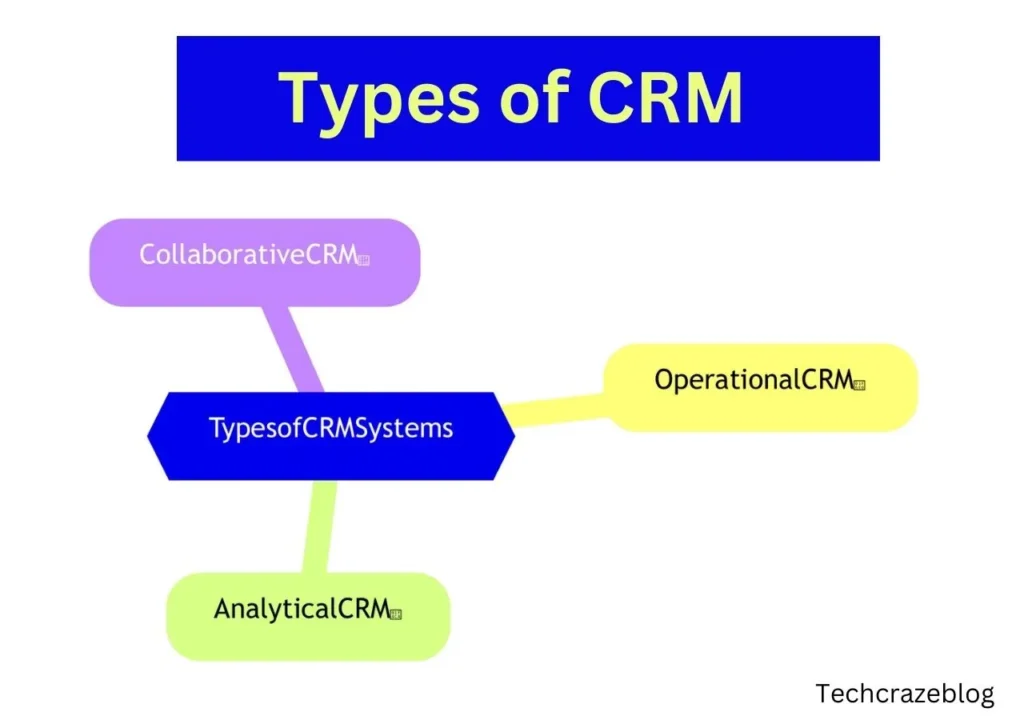
A CRM system serves a specific purpose, contributing to a holistic approach to managing and nurturing customer relationships. Through various forms of CRM, businesses can increase customer engagement, improve operational efficiency, and drive strategic decision-making.
1. Operational CRM
Operational CRM focuses on automating and improving customer-facing processes such as sales, marketing, and service. It helps manage customer interactions, track leads, and streamline workflows. Key features include contact management, lead tracking, and service automation. By improving efficiency and organizing customer data, operational CRM systems enhance customer experiences and drive business growth.
2. Analytical CRM
Analytical CRM centers on analyzing customer data to gain insights into customer behavior and preferences. This type of CRM uses data mining, business intelligence, and analytics tools to help businesses understand customer trends, segment markets, and make data-driven decisions. Analytical CRM systems enable companies to optimize marketing automation, forecast sales, and improve customer retention by leveraging deep insights.
3. Collaborative CRM
Collaborative CRM emphasizes enhancing communication and cooperation between different departments within an organization, as well as with external stakeholders like suppliers and partners. It integrates communication channels and ensures that all customer interactions are documented and accessible across the organization. Collaborative CRM systems facilitate better customer service, foster teamwork, and improve overall customer satisfaction by ensuring a unified approach to customer management.
Also Read: What is Black Duck Software? A Comprehensive Guide
CRM Importance in Modern-Day Businesses
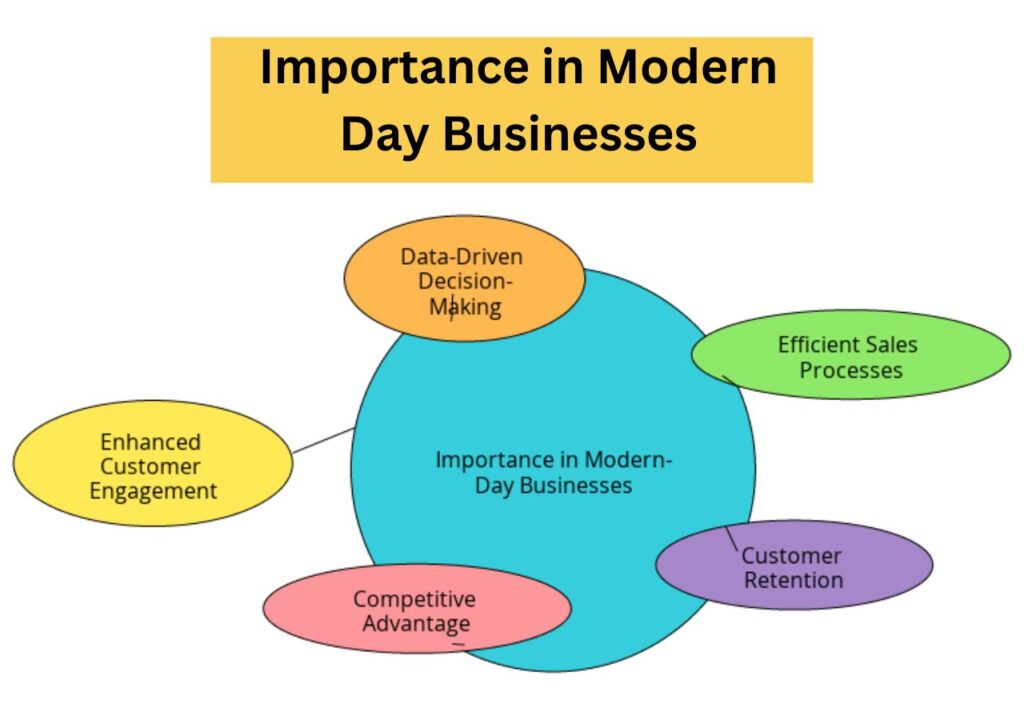
Enhanced Customer Engagement
Customer engagement means making customers feel involved and interested in what a business offers. When customers are happy, they are more likely to buy products and tell their friends about the business. Companies use tools such as social media and email to communicate and engage with their customers. This keeps customers happy and keeps them coming back.
Imagine a store that knows what you like and can suggest new toys or games just for you. This makes shopping more fun and enjoyable. Companies can use social media, websites, and apps to keep in touch with their customers, answer questions, and share exciting news.
Efficient Sales Processes
CRM systems streamline sales processes by automating routine tasks, tracking customer interactions, and managing sales pipelines. This efficiency allows sales teams to focus on building relationships and closing deals faster. For example, online stores can show you what’s in stock, let you order with a click, and deliver items to your home. This saves time and makes shopping more convenient. In physical stores, technology like barcode scanners and cash registers make it easier and quicker to buy things.
Data-Driven Decision-Making
With CRM systems, Businesses collect a lot of information about what customers like and how they shop. This data helps them make smart decisions. By analyzing customer data, companies can identify trends, forecast demand, and develop targeted marketing strategies. For example, if a store knows that lots of people buy ice cream in the summer, they can stock more ice cream when it’s hot. This helps them make sure they have what customers want when they want it.
Customer Retention
CRM helps maintain long-term relationships with customers by providing timely follow-ups, personalized offers, and proactive customer service. This not only enhances customer satisfaction but also increases retention rates. For example, loyalty programs can reward customers for shopping at a store often. Apps and emails can remind customers about new products or special offers. This makes customers feel valued and encourages them to keep coming back.
Competitive Advantage
Implementing a robust CRM system provides a competitive edge by enabling businesses to respond swiftly to market changes and customer needs. It helps in building stronger customer relationships, which is crucial for staying ahead in a competitive market.
Benefits of Using the Power of CRM Software
Customer Relationship Management (CRM) systems are tools that help businesses manage their interactions with current and potential customers. Here are the main benefits:
Improved Customer Relations
A CRM system helps businesses keep track of every interaction with their customers. This means they can remember important details about each customer, like their preferences and past purchases. By knowing these details, businesses can provide better and more personalized service, making customers feel valued and appreciated. For example, if a customer always buys a certain type of product, the business can recommend similar items they might like. This leads to happier customers who are more likely to come back.
Streamlined Communication
With a CRM, all communication with customers is stored in one place. This means that whether a customer sends an email, makes a phone call, or chats online, all these interactions are recorded in the CRM. This makes it easier for the business to respond quickly and accurately to customer inquiries. It also ensures that no important details are missed, even if different employees are handling the communication at different times.
Better Data Analysis
A CRM system collects a lot of data about customers and their interactions with the business. This data can be analyzed to find patterns and trends. For instance, a business might discover that most of its customers buy a certain product during a particular season. By understanding these trends, businesses can make better decisions about marketing and sales strategies. They can focus their efforts on what works best, leading to increased sales and better customer satisfaction.
Also Read: Exploring the Power of Kuta Software: A Comprehensive Guide
Enhanced Team Collaboration
With a CRM, team members can easily share information and work together more effectively. For example, if a salesperson notes that a customer is interested in a new product, they can add this information to the CRM. Later, a customer service representative can see this note and follow up with the customer to provide more details. This way, everyone on the team is on the same page and can work together to provide the best service possible. It also helps avoid duplication of work and ensures that customers receive consistent and coherent service.
Overall, using a CRM system helps businesses build stronger relationships with their customers, communicate more effectively, make better decisions based on data, and collaborate more efficiently as a team. This leads to happier customers and a more successful business.
What Does CRM Mean for Different Industries? Unlock the Power of CRM Software
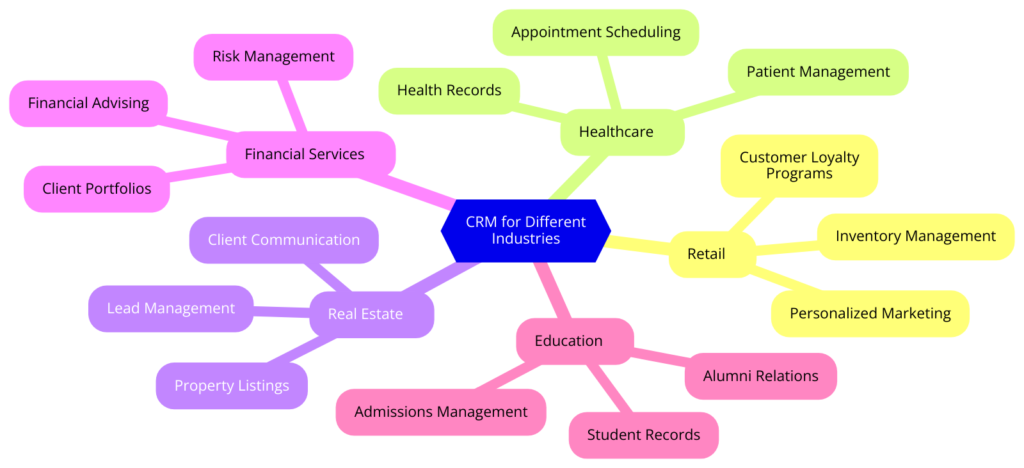
CRM systems are versatile tools that benefit various industries by helping them manage their customer interactions and data. Here’s Unlock the Power of CRM Software in various industries:
Retail
In the retail industry, CRM systems help track customer purchases and preferences. This allows retailers to offer personalized recommendations and promotions. For example, if a customer frequently buys sports gear, the CRM can suggest new arrivals in that category.
Healthcare
Healthcare providers use CRM systems to manage patient information and appointments. This ensures that doctors have up-to-date medical histories and can provide better care. CRMs also help in sending reminders for upcoming appointments or follow-ups, improving patient satisfaction.
Real Estate
Real estate agents use CRM systems to manage interactions with buyers, sellers, and renters. A CRM helps track property viewings, client preferences, and follow-up communications, making it easier to match clients with the right properties and close deals efficiently.
Financial Services
In the financial sector, CRM systems help manage client portfolios and track interactions. Financial advisors can use CRMs to keep detailed records of client meetings, investment preferences, and financial goals. This leads to more personalized and effective financial advice.
Education
Educational institutions use CRM systems to manage student admissions, track academic progress, and maintain communication with students and parents. CRMs help in sending out important notifications about deadlines, events, and academic performance.
Manufacturing
Manufacturers use CRM systems to manage relationships with suppliers, distributors, and customers. CRMs help in tracking orders, managing inventory, and ensuring timely communication throughout the supply chain, leading to improved efficiency and customer satisfaction.
Hospitality
In the hospitality industry, CRM systems are used to manage guest information, preferences, and booking history. This allows hotels and resorts to offer personalized services, such as room upgrades or special offers based on past stays, enhancing the guest experience.
Future Trends in Customer Relationship Management (CRM)
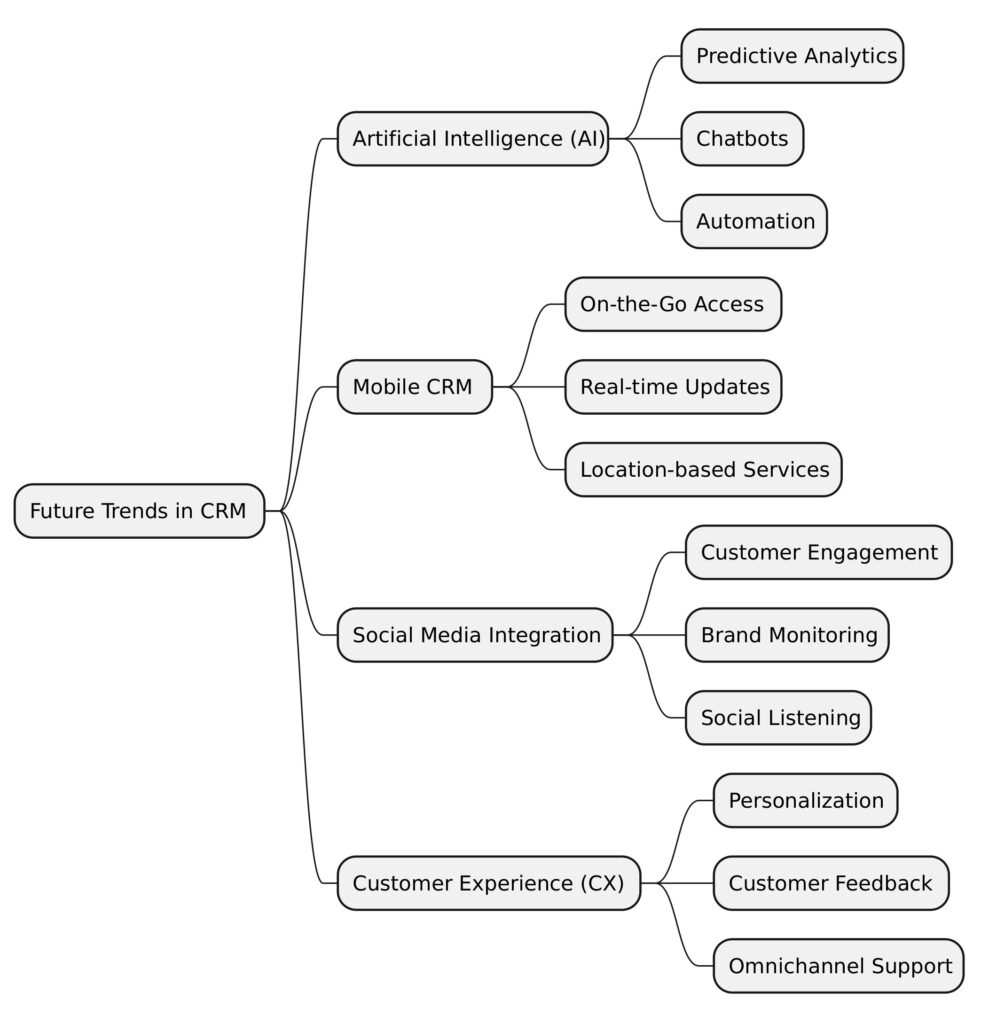
1. Artificial Intelligence (AI):
Artificial Intelligence is like having a smart assistant that helps businesses understand their customers better. AI can analyze huge amounts of data to predict what products a customer might want, answer their questions instantly, and even solve problems before they arise. For example, AI can suggest new video games to a customer based on their past purchases.
2. Mobile CRM:
With Mobile CRM, businesses can manage customer relationships using mobile apps. This means they can help customers anytime, anywhere, right from their smartphones or tablets. For instance, a salesperson can quickly check customer details before a meeting or update records while on the go. This flexibility ensures that customers get timely support and that businesses can respond quickly to their needs, improving overall efficiency and satisfaction.
3. Social Media Integration:
Social media is like a giant community where people share their thoughts and experiences. Businesses are integrating social media into their CRM systems to interact with customers more effectively. They can respond to customer queries, gather feedback, and monitor what people are saying about their brand. This real-time engagement helps businesses understand customer preferences and trends, allowing them to adapt quickly and stay connected with their audience.
4. Customer Experience (CX):
Customer experience focuses on making every interaction with a business enjoyable and memorable. Think of a theme park where every ride and show is designed to make you happy. Businesses aim to provide that level of enjoyment in their interactions with customers. Whether it’s through a user-friendly website, helpful customer service, or fast delivery, enhancing customer experience builds strong relationships and encourages repeat business.

